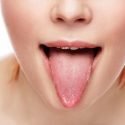4 Best Natural Hormonal Acne Remedies
If you have acne that seems to come and go, is difficult to treat and does not always respond in the same way to ongoing treatment, it could be that you have hormonal acne.
This skin disorder worsens with stress, responds in various ways to fluctuations in hormones and can be made worse by diet and other health habits.
Hormonal acne affects people of all ages.
However, it is most common among adolescents during puberty and women of all ages.
Any time your body is undergoing a significant change in hormone levels, you are prone to developing hormonal acne.
Nearly half of all adult females in their twenties have acne.
While that number decreases with age, acne still affects at least one-quarter of all women in their forties.
If you have an underlying medical condition, you are also much more likely to develop hormonal acne.
Learning to treat your hormonal acne can be a frustrating process.
Even with conventional treatments and medications, hormonal acne is highly unpredictable.
Many seek to treat their acne naturally, to avoid the many side effects of over-the-counter and prescription treatments.
What is Hormonal Acne?
Hormonal acne behaves and presents differently from person to person.
It usually depends on your age.
Most people who are going through puberty will see hormonal acne develop on their forehead, chin, and nose, which is also known as the T-zone.
In adults, hormonal acne tends to form on the lower cheeks, along the jawline and in other parts of the lower face.
These are not steadfast rules but instead generalized trends that describe most people with hormonal acne.
Hormonal acne can present as whiteheads, blackheads, pimples or cysts.
While pimples remain on the skin’s surface and come to a head, cysts remain below the skin and can be tender to the touch.
Therefore, what causes these skin blemishes?
Hormonal acne begins when fluctuations in the body’s natural hormones produce too much sebum, which is the oil that your skin naturally creates.
This sebum sits on top of the skin and clogs your hair follicles with excess oil and skin cells.
Once inside the follicles, acne-causing bacteria are activated, creating the tell-tale blemishes previously described.
Puberty, menstruation, menopause, changes in androgen levels, polycystic ovary syndrome (PCOS), and other hormone-changing disorders and conditions can cause an increase in sebum that kicks off the hormonal acne cycle.
In addition to naturally occurring cycles and changes in hormone levels, other things can influence your body’s production of testosterone, estrogen, progesterone and other hormones.
Chronic stress is a significant contribution to hormone imbalance, as are disruptions to sleep.
Your diet and activity level also help to maintain hormone balance.
Therefore, when you are eating poorly, are not properly digesting your foods or are not taking care of your overall health, you can develop hormonal acne.
Improving several critical areas of your health can help prevent and treat hormonal acne, as can becoming aware of what triggers or causes your breakouts.
We’ll talk more about treatments in a later section, but let’s first look at the differences between hormonal acne and other forms of skin blemishes.
The Difference Between Hormonal and Other Types of Acne
Most adults who experience acne after puberty likely have hormonal acne.
Women who are perimenopausal or menopausal are also likely to have hormonal acne.
This type of acne will appear cyclically in many people, with breakouts appearing just before or during a menstrual cycle or erupting during times of high stress.
The name hormonal acne is meant to designate the likely cause of the breakouts, not necessarily how these appear on the skin.
Hormonal changes can cause everything from cystic acne to non-inflammatory acne, like blackheads and whiteheads.
Another type of acne that is caused by a different mechanism is acne mechanica.
This type of acne is usually associated with other parts of the body besides your face.
It is the result of friction, pressure, and heat over time.
Most people with this type of acne, which is common on the back, around the hairline, and on the buttocks, are athletes or those who engage in a lot of physical activity.
Where skin rubs against clothing and equipment, this type of acne can develop.
There are other causes of acne as well as other types of breakouts.
If your acne does not appear to be healing using natural or over-the-counter remedies, you should talk with your dermatologist about your options for treating your specific type of blemish.
Not all acne responds to all types of treatment.
Understanding Hormonal Acne Breakouts
The overproduction of sebum, or skin oils, is the main reason why you suffer from hormonal acne.
However, it is the reason you are producing this excess oil, that is the real root of your blemishes.
This should be the focus of your treatment.
Getting your hormones under control and evened out is the goal of treating hormonal acne breakouts since these swings in body chemicals are the cause of your breakouts.
In addition to hormone fluctuations that are part of your body’s natural cycle, other factors can cause hormonal acne breakouts.
If your body is fighting inflammation due to food intolerances, allergies, poor digestion, overgrowth of Candida albicans yeast, or illness, your hormones can respond with spikes and overproduction.
If your diet is high in foods known to increase inflammation or increase androgen production, you may experience hormonal acne.
Diseases and medical disorders can also cause hormonal disruptions and fluctuations.
Hypothyroidism, chronic fatigue syndrome, PCOS, insulin resistance, and other blood sugar and hormone imbalances can lead to acne breakouts and skin blemishes.
Conventional Treatments for Hormonal Acne
Treating hormonal acne conventionally usually involves treating your hormonal imbalance, which is why over-the-counter (OTC) medications are generally ineffective.
While OTC creams may help dry out blemishes, they do not address the cause of your over-stimulated hormone production.
Many doctors will recommend that women with severe hormonal acne take oral contraceptives or anti-androgen medications.
Oral contraceptives control a woman’s monthly release of acne-causing hormones.
Women with PCOS or other disorders that result in significant hormone fluctuations can be treated with oral contraceptives.
Not everyone would benefit from or should take these medications, and you should discuss them with your doctor.
Both men and women produce the androgen hormone.
Too much of this natural body chemical can result in acne since androgens increase oil production.
In severe cases where androgen levels are very high, your doctor may recommend medications with an anti-androgen effect to treat your hormonal acne.
Mild hormonal acne can sometimes be successfully treated with topical retinoids, which are made from Vitamin A.
Some OTC acne treatments contain retinoids, but a prescription-strength cream or gel may be warranted in some cases.
Retinoids raise your risk of sunburn and other damage from UV rays, so be sure to always wear sunscreen while using this type of treatment.
How to Naturally Balance Hormones
Taking medications or using prescription topical agents may seem extreme or unwanted when treating your hormonal acne.
While topical treatments can reduce the appearance of your acne in some cases (but not all), they do not treat the underlying cause of these breakouts.
Before you embark on a trial-and-error approach to treating your hormonal acne, it may be worthwhile to have your hormone levels tested by a physician.
This type of test can help you identify where you have hormone imbalances and which hormones are the most likely culprit for your hormonal acne.
Having this information can be invaluable when devising a way to treat your hormonal acne naturally.
Talk to your doctor about testing your hormones, and be sure to discuss which hormones the test covers.
The next step is to identify any patterns in your breakouts as well as in the appearance and severity of your blemishes.
Record details about your acne breakouts for several months, noting when blemishes begin to appear, where they erupt, how long they last and what type of blemishes they are.
This can also help you to determine the best course of action for treatment.
Once you know if your hormonal acne flares just before your menstrual cycle, during times of stress, after your sleep cycle has been disrupted, during periods when your diet was less-than-ideal, or when you ditched your exercise routine in favor of something else, you can determine the best way to tackle the problem.
Recording these details can help you change your lifestyle in ways that will reduce the likelihood of future breakouts.
Here are some of the most common changes you’ll need to make to treat your hormonal acne naturally.
Reduce Stress Level
When you experience periods of high stress in your life, your body naturally responds by producing excess hormones, including cortisol, which is known as the stress hormone.
Cortisol naturally enhances the production of androgens, which are responsible for acne.
When you learn to control and reduce your stress levels, you can keep acne at bay and enjoy a lower-stress life.
The key to treating hormonal acne is very often not to treat the skin but instead to address your emotions.
Learning to reduce and control your stress is an essential part of a healthy life and is necessary for the management of your hormonal acne.
Each person responds to stress differently.
What you find relaxing, may not be the same for someone else.
You may have to experiment with ways to lower your stress level.
Some popular stress-reducing activities include meditation, yoga,
regular exercise, spending time outdoors, walking, and engaging in a favorite hobby or pastime.
Relaxation exercises and activities, such as deep breathing, aromatherapy, and soaking in a hot bath, are also great ways to reduce your stress level.
Change Diet
How you fuel your body also plays a significant role in the production of various hormones.
Your skin is an outward reflection of your internal health.
When it doesn’t have sufficient nutrients and water to be healthy, you will see it reflected in the mirror.
Certain foods known to raise inflammation can trigger hormone fluctuations and lead to hormonal acne flare-ups.
Some foods are common allergens or lead to sensitivities which are known to contribute to acne in some individuals.
These include foods like dairy, processed grains, and gluten.
Foods high in fats and processed sugars are also inflammatory.
Eating foods that are lower on the glycemic index can help you maintain a more consistent blood sugar level, which also helps to keep hormone levels regulated.
Avoiding high-starch foods, products made with white flour, and potatoes can help to reduce spikes in blood sugar while eating more whole grains, greens, and natural sugars like those found in fruit are more likely to keep glucose and hormone levels under control.
Foods high in omega-3 fatty acids can also help to lower inflammation and balance hormones, which can reduce acne-causing androgens.
High quality, wild-caught fatty fish and fish oils are an excellent source of omega-3s, as are primrose oil, flax, olive oil, nuts, seeds, avocados, and sea vegetables.
Watch Nutrient Intake
Your body needs certain nutrients to regulate hormone levels and perform its necessary functions.
In addition to eating a diet rich in fruits and vegetables, you may also consider taking supplements to make sure you are getting sufficient amounts of Vitamins C and A, as well as the full spectrum of B vitamins.
You also need plenty of chromium, zinc, and magnesium.
Try Herbal Supplements
Some herbs have been shown to reduce stress, while others can provide support for your digestion and other body functions.
This can help you to better regulate your hormones.
Herbs like ashwagandha, Rhodiola and holy basil can help reduce your stress levels.
Milk thistle, burdock root, licorice root, and maca are helpful in promoting hormone regulation, which can keep your acne in check.
Conclusion
Treating your hormonal acne can be difficult if you do not address the underlying cause of your breakouts.
Regulating your hormones will help you avoid blemishes, so you will be acne-free more often.
Tracking your outbreaks, as well as lifestyle and other triggers, can help you to identify patterns and problems.
This will allow you to determine the best solutions for this stubborn problem.
Treating hormonal acne naturally involves reducing your stress levels, making changes to your diet to lower androgens, ensuring that you are getting sufficient nutrients and using herbal supplements to decrease stress and regulate your hormones.
Minor natural changes to your lifestyle can make a significant difference in treating your hormonal acne.
This will allow you to have a blemish-free complexion.
FDA Compliance
The information on this website has not been evaluated by the Food & Drug Administration or any other medical body. We do not aim to diagnose, treat, cure or prevent any illness or disease. Information is shared for educational purposes only. You must consult your doctor before acting on any content on this website, especially if you are pregnant, nursing, taking medication, or have a medical condition.
HOW WOULD YOU RATE THIS ARTICLE?






